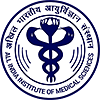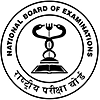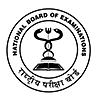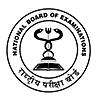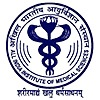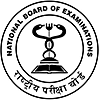MD Pharmacology Syllabus and Subjects

MD Pharmacology subjects list and electives consist of an in-depth medical science syllabus, emphasizing doctorates' knowledge. In addition to that, an MD Pharmacology course imparts specific practical, laboratory, and theoretical knowledge in the subject areas to the students, such as science, health care, projects, dissertation, training, and so on.
Semester Wise MD Pharmacology
MD Pharmacology is a semester-wise syllabus. MD General Science subjects aim to introduce students to various techniques medical doctors use to treat patients better. The MD covers general pharmacological principles and allied sciences, Systemic pharmacology, chemotherapy, therapeutics, Experimental pharmacology, Screening for drugs and statistics, and many more. The MD Pharmacology course is divided into three yearly semesters, and the course curriculum includes both practical and theoretical elements in its curriculum. The syllabus for MD Pharmacology semester wise are:
|
Semester I |
Semester II |
|
Central Nervous System |
Microbial Resistance |
|
Autonomic Nervous System |
Gastrointestinal System |
|
Cardiovascular System |
Respiratory System |
|
Hematopoietic System |
Endocrinology |
|
Renal System |
- |
|
Semester III |
Semester IV |
|
Qualitative and Quantitative Pharmacokinetics |
Data Archiving and Management |
|
Pharmacodynamics |
Rational Drugs |
|
Direct Interactions |
Chemotherapy |
|
Autonomic Nervous System |
Endocrine Pharmacology |
|
Central Nervous System |
Renal Pharmacology |
|
Pharmacogenomics |
Respiratory System |
| Semester V |
Semester VI |
|
Study Design |
CPCSEA |
|
Biostatics |
Dissertation |
MD Pharmacology Subjects
All the MD Pharmacology subjects taught in the MD Pharmacology course help the students understand the knowledge and pursue a better PhD degree for the job scope in the future. The MD Pharmacology subjects like General Pharmacological Principles and Allied Sciences, Screening for Drugs and Statistics, etc. taught in the course curriculum of MD Pharmacology. Moreover, some subjects are related to the medical science syllabus.
Core Subjects:
- General pharmacological principles and allied sciences
- Systemic pharmacology, chemotherapy, and therapeutics
- Experimental pharmacology
- Screening for drugs and statistics
Electives Subjects:
- MD Pathology
- MD General Medicine
- MD Community Medicine
- MD Microbiology
- MD Physiology
- MD Biochemistry
- MD Anatomy
- MD Pediatrics
MD Pharmacology Course Structure
The MD Pharmacology syllabus and course curriculum is structured into three years, namely core and elective subjects. The course for the curriculum has been divided into three yearly semesters, consisting of General pharmacological principles and allied sciences, Systemic pharmacology, chemotherapy, therapeutics, Experimental pharmacology, Screening for drugs and statistics, etc. Some of the MD Pharmacology course details are:
- III Yearly Semesters
- Core subjects
- Practical and Laboratory
- Projects
- Dissertation
MD Pharmacology Teaching Methodology and Techniques
The MD Pharmacology doctorate course curriculum includes various teaching methods and techniques that help students understand multiple topics taught in their classes. Some of the different teaching methodologies and techniques adopted in the course curriculum of the MD Pharmacology doctorate course are as follows:
- Practical & Laboratory sessions
- The emphasis of Practical Learning
- Designing cost-effective and straightforward experiments.
- Guest Lectures, Seminars, and Workshop
- Group Assignment and Discussion
- Learning through Industrial Visit
- Research & Development
MD Pharmacology Projects
Project Topics for MD Pharmacology is a fantastic resource for students and researchers who will become doctors in the medical field and looking to complete ground-breaking research. The students can take the MD Pharmacology project topics based on their subjects and syllabus, motivating them to develop additional knowledge to complete the project work. Some of the best topics for MD Pharmacology is:
- Antioxidants from Natural Sources
- Newer approaches in Treatment of pain: N-Type Calcium Channel Blocker
- Nan robots and their Application in Medicine
- Evaluation and Characterization of Bioadhesive Drug Delivery Systems
MD Pharmacology Reference Books
Best books for MD Pharmacology help students understand various subjects and topics covered in the course curriculum. The MD Pharmacology books help doctorates expand their knowledge and vision about multiple topics covered in their classes. Some of the very best MD Pharmacology books are:
|
Books |
Authors |
| Elsevier's Integrated Review Pharmacology |
Mark Kester |
| The Pharmacological Basis of Therapeutics |
Louis Sanford |
|
Pharmacological Classification of Drugs |
KD Tripathi |
| Basic and Clinical Pharmacology |
Bertram G. |
| Stockley's Drug Interactions |
Karen Baxter |















